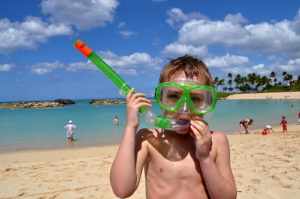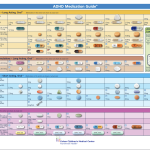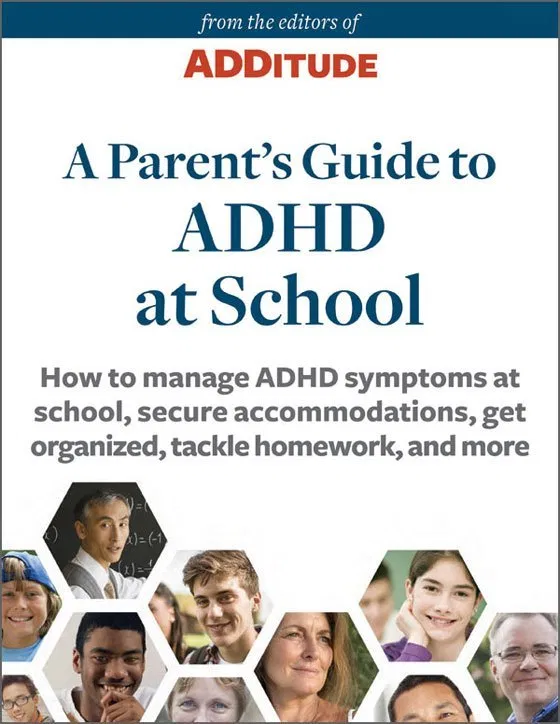ADHD: The Pros and Cons of a “Medication Holiday”
 Written by Dr. Glen Elliott, former CHC Chief Psychiatrist and Medical Director
Written by Dr. Glen Elliott, former CHC Chief Psychiatrist and Medical Director
Summer checklist: Sunblock…check. Beach towels…check. Medication…uncheck?
During the school year, many children with attention-deficit/hyperactivity disorder (ADHD) use medications—especially stimulants such as methylphenidate (e.g., Ritalin, Concerta, Focalin) or amphetamine (e.g., Adderall, Vyvanse)—to increase focus and attention span and decrease restlessness and impulsivity. This is especially true for children who have both high activity levels and impulsivity found with combined-type ADHD (ADHD-C) but may also be the case for the primarily inattentive type of ADHD (ADHD-I). Because stimulants provide symptom relief soon after taking them but are out of the system by the end of the day, there is the option of taking a “medication holiday” over the summer.
Is a medication holiday right for your child?
As with most parenting decisions, there is no single right answer. It is important to discuss the matter with the whole family as well as with the prescribing doctor. Further, it is not necessarily an either/or question. For example, you might try using a lower dose of medication during the summer or have your child off medication part of the time but on medication if the situation warrants it, perhaps for a science camp, wedding, or family reunion. And, keep in mind that you can always change your decision if things start going downhill.
The type medication your child is taking may factor into your decision
In contrast to the quick results provided by stimulants, the nonstimulant medications for ADHD—atomoxetine (Strattera), guanfacine (Tenex or Intuniv), and clonidine (Catapres or Kapvay)—take weeks to begin working and must be taken daily, with benefits growing up to at least six weeks and perhaps longer. Usually, it is best to keep nonstimulants going for the summer because they need time to build up in the system.
With stimulants, however, you can stop or start pretty much at will. Also, the major side effects of stimulants—decreased appetite, weight loss and slowed height growth—increase with the total amount of stimulant given over time, so lowering the dose or stopping it altogether when feasible should give the child a chance to eat more and grow at a faster rate.
Consider your plans for the summer
Regardless of which medication or medications your child is taking, treatment reduces the core symptoms but does not change the course of ADHD itself. In many ways, then, deciding what to do for the summer is similar to choosing whether to use them in the first place: if they make life and other developmental tasks easier for the child and produce few or no side effects, then continuing to use them during the summer may be a wise decision. If planned activities diminish the need for medication or if side effects are significant, then lowering the dose or stopping altogether may be a better choice.
So, consider a 10-year-old boy with ADHD-C who did well on methylphenidate during school but has had a relatively poor appetite, trouble getting to sleep, and slowed height growth. If summer plans include several high-activity camps that he enjoys—with supportive staff who are comfortable with a bit of hyperactivity and impulsivity—a trial off medications certainly seems warranted. But, if the summer involves a science or computer camp that requires sitting in one place for much of the day and absorbing information, or special events requiring good behavior, then ongoing treatment might be prudent.
Your best bet is to experiment with an open mind. Asking camp counselors to provide feedback can help promote success. As children mature, they may be able to provide good feedback, although some simply do not notice the medication effects and cannot reliably tell you whether it is helping or not.
Going back to school
If you do stop medication during the summer and things go well, it might be tempting to start the new school year off medications, too. This strategy has been studied and refuted, especially for children who are impulsive and highly active.
As a parent of a child with ADHD, remember it’s a chronic condition that, like allergies or asthma, is sensitive to environmental changes. Sometimes behaviors flare and require more intensive intervention; other times, they are less of an issue and may even be a relative advantage, encouraging initiative, creativity, and enthusiasm.
You are the expert on your child in terms both of what kinds of situations promote success and of the extent of any side effects. Plan ahead, make good use of your ongoing relationship with your child’s doctor, and let past experiences guide you in smoothing future ones for your child and family.
See CHC’s ADHD Guide to learn more about ADHD at every age — at home, at school and in life.
To schedule an evaluation or to get advice about your child’s challenges, call or email a CHC Care Coordinator at 650.688.3625 or careteam@chconline.org






